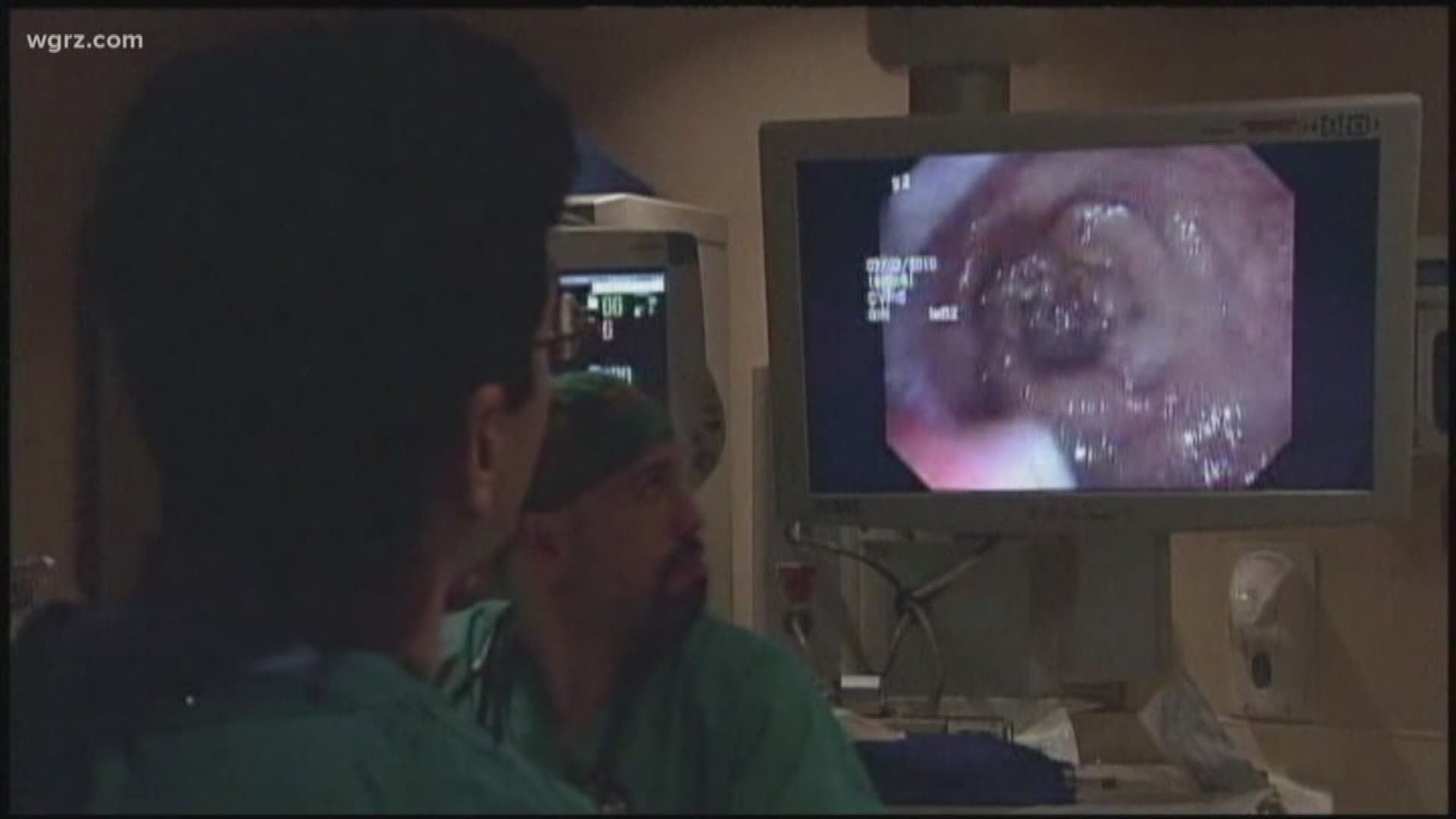BUFFALO, N.Y. — A nationwide clinical research study is underway that aims to validate that a blood test can be an easy and accurate option to detect colorectal cancer.
The Colorectal Cancer Alliance (CCA) is partnering with Freenome, a South San Francisco-based biotech company, to recruit people for the study.
They're looking for 14,000 participants in the United States.
The study is open to people ages 45 to 85 who are of average risk and who plan to undergo a routine colonoscopy. The blood test is paired with that traditional screening. There's no medication or treatment required.
Freenome plans to submit the findings to the FDA for approval, a process that could take several years.
It's important to note that colonoscopies are still the gold standard when it comes to colorectal cancer detection, and this blood test isn't aimed at replacing them.
"Colon cancer is sort of the first place we started because we felt the need is great and because of our ability to have a significant and more immediate impact on the lives of literally millions of people in the U.S., not to mention the rest of the world," said Girish Putcha, Freenome chief medical officer and director of clinical laboratory.
Putcha hopes that one day, Freenome's blood test will be able to detect different types of cancers and diseases for which there is currently no standard test or screening.
Western New Yorker Kevin Hays is a stage-4 colorectal cancer patient and sits on the CCA's Never Too Young Advisory Board, which works to raise colorectal cancer awareness among young people.
Colorectal cancer incidence and death rates are increasing in the young-onset population even though it's going down in those over 50.
Between 2009 and 2013, colorectal cancer rates decreased by 4.6% per year in individuals 65 and older and by 1.4% in people aged 50 to 64, according to the American Cancer Society. But they increased by 1.6% in those under age 50.
It's still unknown exactly why more young people are being diagnosed — and research is currently being done — but the risk of disease is attributed, in part, to smoking, alcohol use, living a sedentary lifestyle, and obesity.
Hays is trying to recruit people to be a part of the clinical research study. He says any advancements when it comes to early detection can one day prevent people from going through what he's had to go through.
"I've been through multiple highly invasive surgeries, had a lot of organs taken out, a lot of chemo put in my body," said Hays, who was first diagnosed seven years ago when he was just 28 years old. The father of three has had two recurrences since then.
The American Cancer Society estimates nearly 150,000 people will be diagnosed with colorectal cancer in the U.S. this year, and the ACS estimates nearly 53,000 people will die from it.
Colorectal cancer is the third most common cancer and is the second-leading cause of cancer death among men and women combined, according to the American Cancer Society.
Early detection can save lives! There's a statewide program that provides free breast, cervical, and colon cancer screenings and education to eligible, uninsured & underinsured men and women.
Click here for more information on Freenome's clinical trial.

